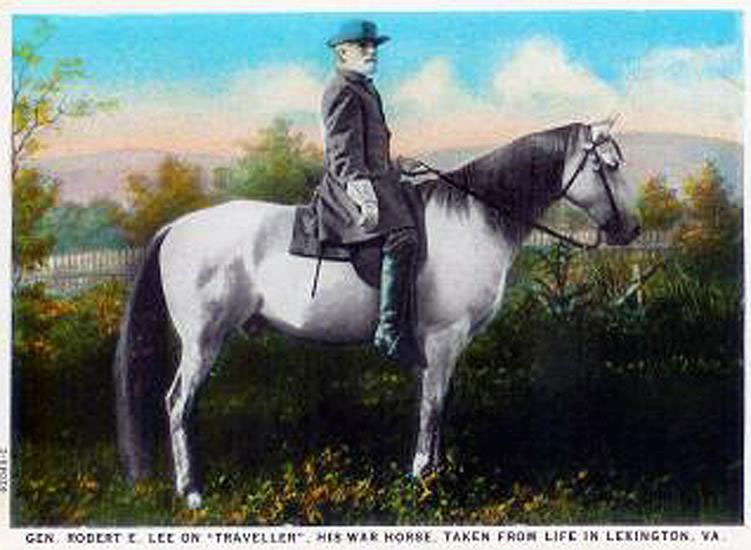For over a hundred years after the Civil War, Robert E. Lee was a hero to Americans in the South and widely respected in the northern states as well. His personal integrity, courage, brilliance on the battlefield and finally his grace in defeat made him a legend in his own time and for more than a century after his death.
Robert E. Lee
Lee did not want to see war come between the states of the Union. He wrestled long and hard with the decision to decline command of all the Union armies when it was offered to him by President Lincoln. But when his native Virginia seceded, he followed her into the new Confederate States of America.
Lee’s genius on the battlefield was soon evident. As the number of his victories increased he was given command of more and more Confederate troops. Ultimately he would become the leader of the entire army. His troops trusted him implicitly and would follow him into the most horrific storms of shot and shell. But his true character is perhaps illustrated best in the true story of an encounter Lee had with a soldier from the other side. This story is told in detail in Portraits of Integrity.
On a hot day in early July, Union soldier Marcus Wright lay wounded on the bloody battlefield of Gettysburg, his leg shattered by a Confederate bullet. The southerners had suffered a devastating defeat and would soon be retreating back across the Potomac, having just seen the beginning of the end of their dream of independence from the Union.
Late in the day, Marcus looked up at the sound of hoof beats passing nearby. He recognized one of the riders from pictures he had seen. It was Robert E. Lee, commander of the Confederate army. He was no doubt deep in sorrow at the loss of so many of his beloved soldiers in the last three days of battle, not to mention the damage done to the cause of his country.
But young Wright saw not a patriot, but a hated enemy. This man was the leader of the men who had shot his leg out from under him. He was the general of the army Wright had left home and family to fight against. Struggling to marshall his strength, the young soldier shouted at the riders, “Hurrah for the Union!” Then he fell back, exhausted.
The horses stopped. General Lee dismounted and came to look down on the wounded man. Wright thought, “He’s going to kill me.”
But the old soldier knelt beside him and took his hand. Kindly eyes, lined about and softened with sadness at all the suffering they had witnessed, looked into the agonized young face. General Lee spoke. “My son, I hope you will soon be well.”Pa
Wright was as filled with admiration as he had previously been with hatred. He later testified that after the General left him, he turned his face into the grass and cried like a baby.
So it is that kindness can turn an enemy into an admirer.


Is this verifiable?
Yes, we have it documented in Portraits of Integrity.